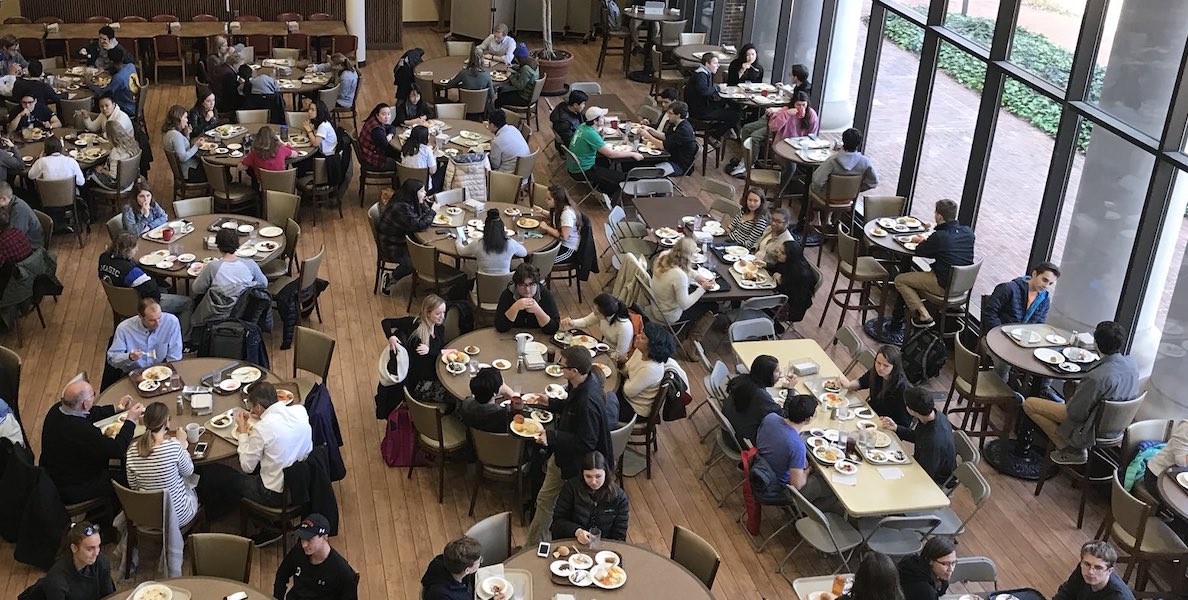As students return to college this fall, the latest evidence on food insecurity in higher education is not good. The federal government just — for the first time ever — finally released national numbers, and they show that 23 percent of students overall, and 35 percent of Black or African American students, don’t have enough to eat. The problem is worse at the institutions with the least money to help, and especially at community colleges. Of course, students from structurally minoritized backgrounds, those who are the first in their families to attend college, and those with the least income are overwhelmingly the most affected. So are students with children.
But I think most people would be particularly stunned to know that 18 percent of students who earned As and Bs in high school are nonetheless food insecure in college, and so are 21 percent of students who supposedly have their full demonstrated financial need met. Students from below the poverty line and those well above it are affected. This is a problem everywhere and affecting so many of us.
18 percent of students who earned As and Bs in high school are nonetheless food-insecure in college, and so are 21 percent of students who supposedly have their full demonstrated financial need met.
While it’s been common sense for a long time, science is starting to catch up and prove that not having enough to eat is bad for educational outcomes — including in college. Recently my colleagues and I published a study looking at what happened when a Boston community college gave meal vouchers to students. It wasn’t just one or two vouchers, or a little emergency support: It was enough money to allow them to eat in the school cafeteria several times every week. Since there wasn’t sufficient funding for vouchers for all students who needed them, a group was chosen using a lottery and another group served as the comparison group. We did this to gather the evidence needed to drive policy and ensure all students have the funding to eat going forward.
And that’s what we learned: feeding students pays off! They completed more classes, obtaining more credits, and over two years they graduated at higher rates. Given the strong economic and health returns that come from a college degree, funding a program like this is an obviously good investment.
The importance of SNAP
SNAP (Supplemental Nutrition Assistance Program) plays a key role in helping feed students, particularly since the National School Lunch Program doesn’t extend to higher education (though it should!). But many don’t use it. The U.S. Government Accountability Office estimates that, thanks to insufficient information about the program, 57 percent of students who are eligible for SNAP don’t receive it.
Many colleges and universities are trying to fix this by doing outreach, providing staff on campus to evaluate students for eligibility and help with paperwork, and so on. Fifteen years ago I don’t think a single college had a “basic needs coordinator” but now they are employed at hundreds of schools. We are starting to see states like California, Oregon, and Washington provide funding for their work, and Colorado and Virginia set up data systems to track whether outreach leads to greater program utilization. Pennsylvania is making some progress as well, though implementation on “hunger-free” campuses is likely uneven. The Community College of Philadelphia was among the first to do this work and see it pay off. This is progress, and later this year we expect updated information from GAO on how these efforts are working to increase SNAP takeup.
The EATS Act recognizes that eating promotes education, which in turn helps our economy and families.
Meanwhile, we are trying to help students survive now that pandemic supports have expired. Many students were newly eligible for SNAP during the pandemic because the criteria were temporarily expanded, helping them qualify. But now we are back to the old rules which make students fulfill work requirements while not counting college as work.
The EATS Act
The Enhanced Access to SNAP Act (EATS Act) championed by Rep. Jimmy Gomez (D-CA) and Sen. Kirsten Gillibrand (D-NY) would treat college students the same as other adults qualifying for SNAP. Students attending at least half time would not have to perform work study, or do 20 hours or more per week of outside employment on top of school, in order to qualify. In other words, the EATS Act recognizes that eating promotes education, which in turn helps our economy and families.
All of us can help by educating ourselves about what’s really happening in college now, who students are, and what they need. Food insecurity is the direct result of a terrible set of new economics of college, just like the student debt crisis. People can encourage their local colleges to get involved in advocating for the EATS Act and for more state funding to assist. Practitioners and advocates can also turn to the new #RealCollege Resource Library, which is full of information about the history and science of this effort and the work ahead.
Dr. Sara Goldrick-Rab was among the first to document widespread food insecurity at colleges and universities and drive national reforms to address it. She founded the Wisconsin HOPE Lab at the University of Wisconsin-Madison and The Hope Center for College, Community, and Justice at Temple University, as well as a national nonprofit Believe in Students, that works in Philadelphia and around the country. She recently retired from academia and now collaborates, mentors, and writes with people and organizations around the world as CEO of EduOptimists. She also serves as senior fellow at Education Northwest. Her next book, #RealCollege, is under development.
![]()
MORE ON IMPROVING COLLEGE FOR ALL FROM THE CITIZEN



